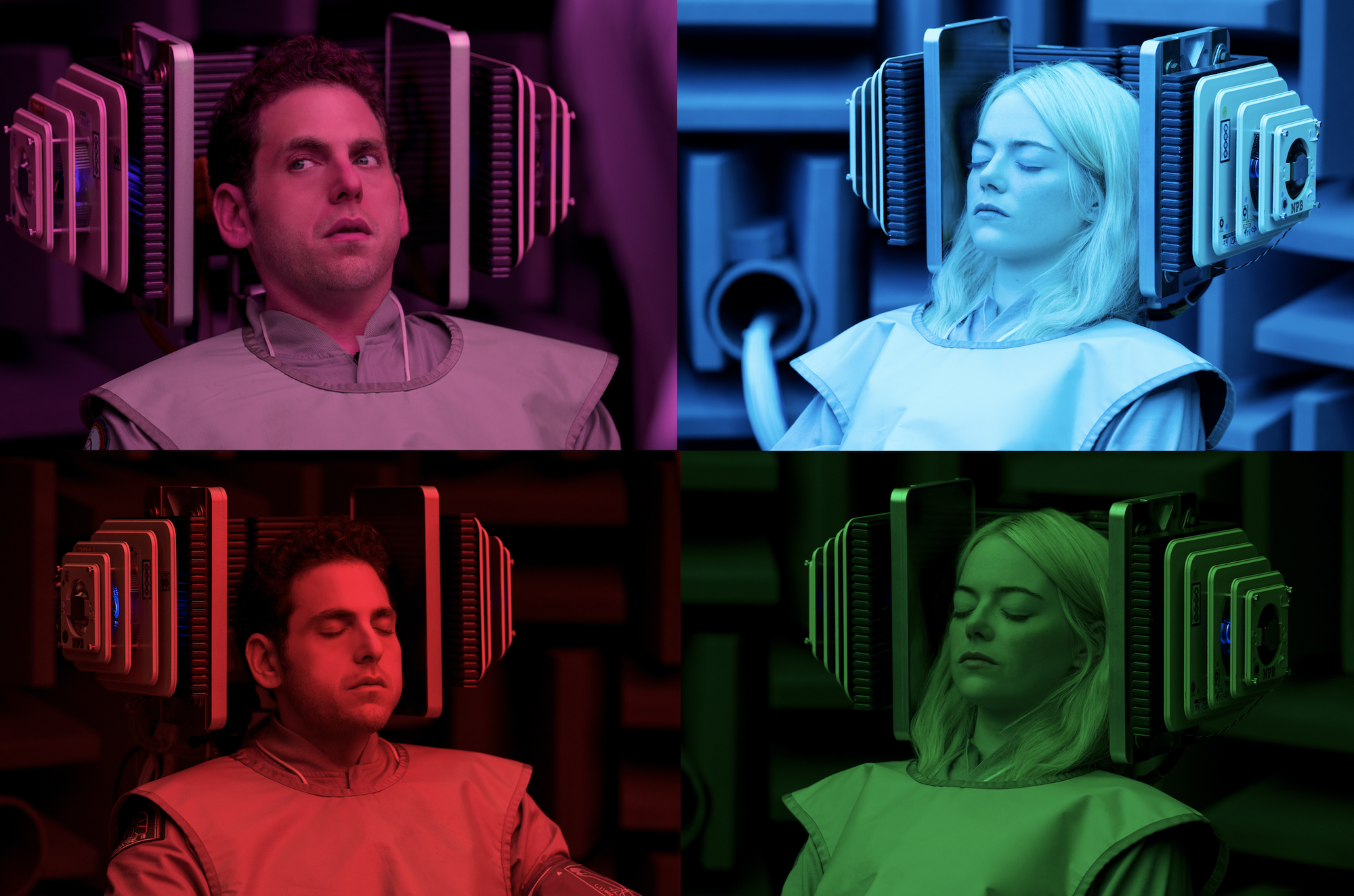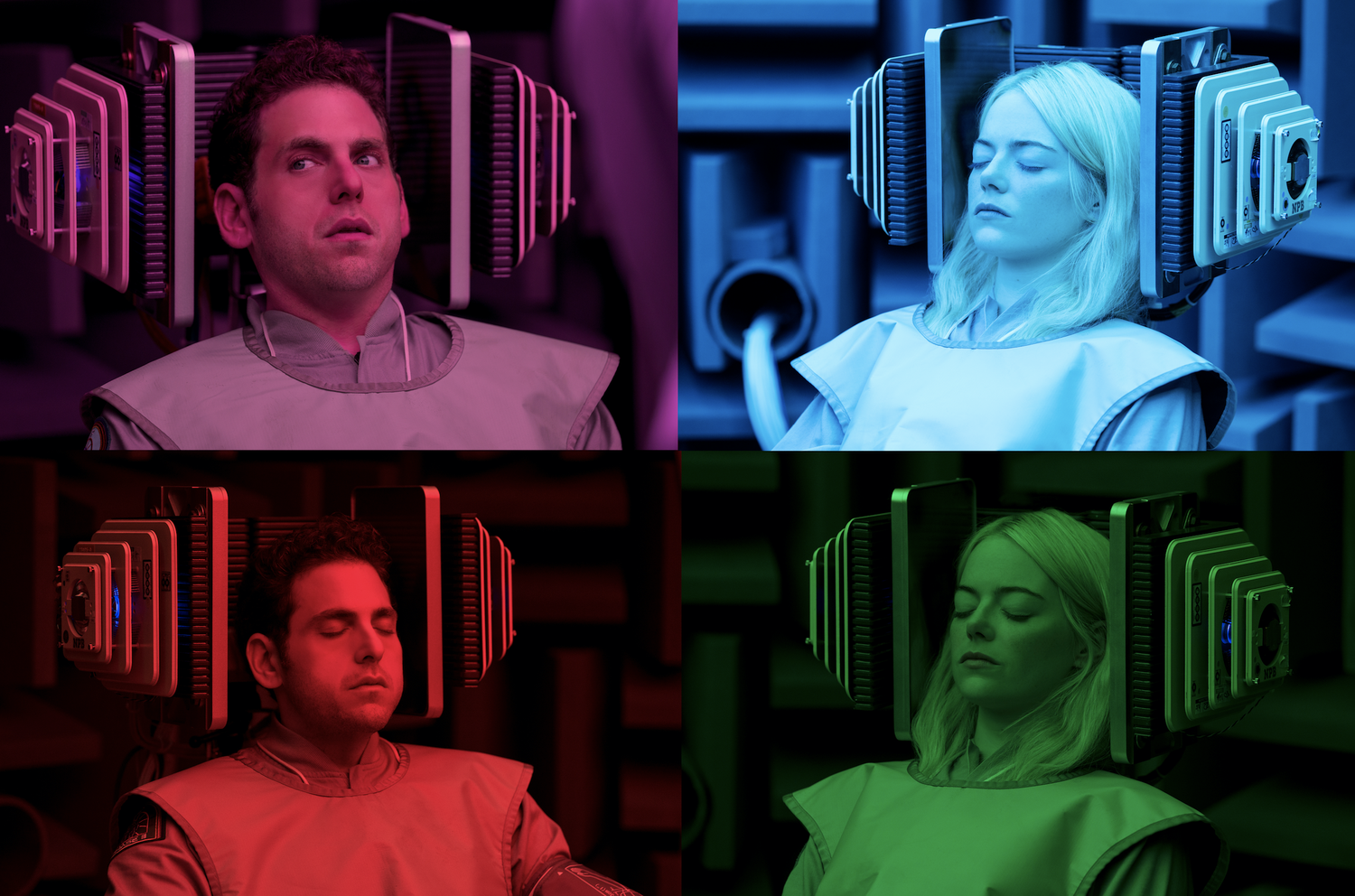
News
Summers Will Not Finish Semester of Teaching as Harvard Investigates Epstein Ties

News
Harvard College Students Report Favoring Divestment from Israel in HUA Survey

News
‘He Should Resign’: Harvard Undergrads Take Hard Line Against Summers Over Epstein Scandal

News
Harvard To Launch New Investigation Into Epstein’s Ties to Summers, Other University Affiliates

News
Harvard Students To Vote on Divestment From Israel in Inaugural HUA Election Survey
‘Maniac’: Where Weirdness Might Become Wonderful


With a blur of color and a plot that will always keep you guessing, “Maniac,” a new Netflix original directed by Cary Joji Fukunaga and starring Emma Stone and Jonah Hill, came out on Sept. 21. Fukunaga, who landed himself an Emmy in 2014 for his masterful direction of “True Detective”’s first season, manages to craft a dramedy with enough ambiguity to keep the audience enticed and unapologetically walk the line between bizarre and ludicrous. Although its important, positive message about friendship is partially smothered by the show’s overwhelmingly dark tone, “Maniac” and its talented cast deliver something refreshing, unpredictable, and surprisingly hilarious.
Set in an aggressively consumerist, highly medicated, near-future world where everything is slightly off-kilter — N.Y.C. features a monument known as the “Statue of Extra Liberty,” and people know as “Ad-Buddies” follow you around all day, reciting commercials — two strangers named Owen (Hill) and Annie (Stone) end up tangled in an experimental drug trial at Nerberdine Pharmaceuticals and Biotech.
What really shines through in this psychedelic trip of a show is the generally stellar performances from most of the cast — not that we’d expect anything less from its star-studded group of bright Hollywood A-listers. Considering Stone recently won the hearts of millions as the young-hearted, vulnerable, and determined Mia in“La La Land,” her ability to transform into the crazy-eyed, thick-skinned, and defeatist junkie Annie demonstrates her versatility as an actor. Her slow crawl from the pit of grief towards eventual acceptance of her sister’s tragic death is the most satisfying character arch as well as the most emotionally stirring aspect of the show.
Though the wacky, disastrous interactions between the scientists at Nerberdine Lab is technically the “B-plot,” they are the fuel that powers the bizarre but charming humor of the show. In particular, despite Justin Theroux having the magnetism and good looks to portray a “McDreamy”-esque doctor heartthrob, he instead repulses and amuses the audience as Dr. James Mantleray, the original creator of the U.L.P. drug treatment. Never wavering in his commitment to the character, Theroux lures us in as a brilliant yet pathetic psychologist with a virtual-reality hentai addiction, an Oedipus complex worse than Hamlet’s, and a hilariously obvious toupee. He’s like a car crash you can’t look away from.
To the true fans of “Superbad,” the notion of an Emma Stone and Jonah Hill reunion is exciting, yet the two initially lacked the anticipated natural chemistry. Considering Hill’s real-life charisma and brilliant comedic timing, his portrayal of the hopelessly alienated and schizophrenic Owen Milgrim is — just notice his gaunt face, intense eye bags, low, mumbling voice, and seemingly extinguished lifeforce — yet also particularly disturbing. His guarded and timid personality left little for me to cling to and made me hope that he’d start hurling insults at Mclovin like the good ol’ days.
“Episode 4: Furs By Sebastian,” however, marks a significant turning point in the Annie-Owen relationship and acts as an adrenaline shot to the show’s previously dreary heart. As this therapeutic drug trial of three separate pills that are supposed to replace the need for therapy continues, the show abruptly transports us into Annie and Owen’s conjoined mind for some vivid yet fictional dream sequences. Shifting to the vibrant, tacky world of the ’80s, Owen and Annie are now a trashy married couple hunting down a pet lemur that has been stolen by fur-coat makers. While such a sudden change in style could destroy the pace of the series, Fukanaga and writer Patrick Somerville’s risk ends up being the show’s saving grace mainly because of the freedom it lends its actors, especially Jonah Hill. It brightened the entire dark world of “Maniac” to see the suddenly invigorated Owen shapeshifting between episodes into a dim-witted, football-loving, but ultimately good-hearted husband with a mullet and a hilarious Icelander whose cartoonish accent is the only thing more ridiculous than his blonde wig.
But while trying to juggle hope with the crushing harshness of reality, this dark comedy leans too strongly toward bleak emptiness, creating an off-balance and undermining its overall message about the importance of connection. The writers prove they do have heart by cheesily teaming Annie and Owen up. Unfortunately, this moment of sunshine is diluted when contrasted with so much human failure and ugliness. If anything, the show, though undoubtedly entertaining, seems to suggest that the human mind, naturally adapted for a hunter-gatherer lifestyle in the desert, doesn’t seem capable of handling the exponentially growing pressures of modern life and moves closer and closer to total mental breakdown.
“Maniac” provides enough mad science and drug experimentation to fill the “Stranger-Things”-sized void in America’s soul as they wait for the third season, yet lacks nostalgia or a much needed, warm, fuzzy feeling. Even still, if you are craving something dark and twisted after the plague of gushy Netflix rom-coms or like the sound of Wes Anderson’s delightful awkwardness, mixed with Stanley Kubrick’s ambitious aesthetic, and sprinkled with some Martin Scorsese-style brutalism, certainly give “Maniac” a try.
Want to keep up with breaking news? Subscribe to our email newsletter.
